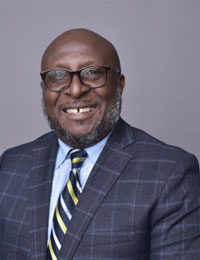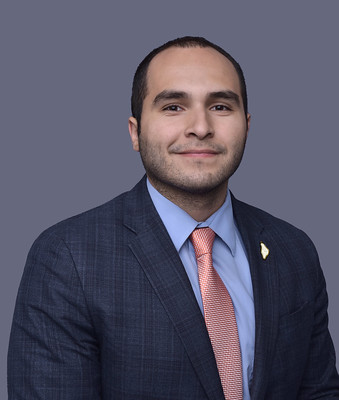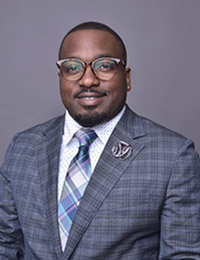
Florida Memorial University was established in 1879, and has been a model of resilience, security, and entrepreneurship from its foundation (prior to the birth of Miami) to its move during the Civil Rights Era to Miami Gardens, Fla., the largest Black majority city south of Atlanta.
FMU’s leadership continues today as it addresses the needs on its campus and surrounding communities to prepare for the challenges of climate change, climate gentrification, environmental justice, and energy burden. Through the creation of its Climate Resiliency Center, FMU will put Resiliency at the heart of its campus, its research, its operations, student engagement, and community outreach.
FMU is in the process of a transformative effort that will create the first Net Energy Positive + 100% Resilient University Campus with integrated sustainability, technology, and innovation education at its core. FMU is partnering with Infiniblaze to co-design, co-develop, and cooperatively operate the infrastructure and program. The partnership also will launch educational, research, entrepreneurship, and collaboration programs for both students and the surrounding communities around sustainability, renewable energy, data analytics, 3D/VR, GIS, building efficiency, and many other associated sustainability and resiliency technologies. FMU will become a to create, teach, demonstrate, and translate the university’s innovations into the communities.
Leveraging the university’s position, existing infrastructure, and expertise, the FMU Climate Resiliency Center will provide students, faculty, and the Black community a place to study along with training on how to use clean solar energy, and other smart infrastructure technologies. The FMU Climate Resiliency Center will serve as a model for how a sustainable campus can perform through power generation, consumption, and technology demonstration/commercialization.
The sole aim of the FMU Climate Resiliency Center is to develop an infrastructure capable of supporting leading-edge research and demonstration in the field of solar, microgrids, battery energy storage, geothermal energy, building automation, water, and other technologies leading to the development of a robust minority workforce pipeline into the clean energy industry. By becoming the primary source of energy for the entire university campus, the FMU Climate Resiliency Center will be a test-bed and demonstration center for self-reliance, innovation, and commercialization. Our mission focuses on the following priorities:
The FMU Climate Resiliency Center Plan itself focuses on developing the tools, technologies, financing, and partnerships necessary to design, deliver, own, and to operate a smart and sustainable infrastructure at a lower operating cost, and at a higher level of service than the utilities and services they are replacing. Ultimately, this demonstration is about putting the ownership of these services into the hands of individuals, communities, and in FMU’s case universities that have been burdened the most by these services historically. These “smart infrastructure services” include renewable energy, water, transportation (EV integration), building management, waste, broadband, security, and food production on campus.
• Phase 1: Primary Energy Services
Within four years, the FMU Resiliency Center will produce 100% of the electricity needed to operate its campus through solar energy production, managed through an advanced microgrid, and made 100% resilient through its microgrid and battery energy storage systems. It is estimated that with these systems in place, FMU will save around $10 million in the following 10 years that can be applied to endowment, scholarships, and student programs.
• Phase 2: Building Upgrades and Automation
In order to get to 100% renewables and resiliency, the existing buildings on campus will go through deep energy retrofits, building automation upgrades, building shell replacements, and other advanced approaches appropriate for South Florida to reduce energy use in existing buildings by 50%. Further, a deep upgrade is needed in its central chilling plant that can be improved by new technologies and possibly integrated with geothermal heat pumps, advanced distributed cooling techniques, and stacking/cross flow cooling design.
• Phase 3: Future Campus Designs
The FMU Climate Resiliency Center will go beyond energy and will tackle the problems around food growth and production at FMU. The campus will service as a microcosm for the surrounding communities, providing clean water technology research and development that could make FMU a Net Zero Water Campus. Waste management, which includes all materials used and consumed on campus, will have the opportunity to be re-used, re-cycled, or returned to energy, such as electric transportation and integration of it into the evolving electric vehicle transport infrastructure, and many other areas of sustainable and resilient infrastructure for the surrounding communities.

Samuel A. Darko, PhD
Director and Chief Resiliency Officer
An avid outside-the-box thinker, Dr. Darko leverages his chemical and environmental engineering background to provide solutions to current sustainability challenges. His research focus is on the conversion of waste biomass into efficient adsorbent materials and the decarbonization of our environment through algae power.

Erik Cruz, PhD
Climate Data Acquisition and 3D Modeling Expert
Dr. Erik Cruz is Chair of Social Sciences and an Assistant Professor of Criminal Justice within the Department of Social Sciences and an affiliated faculty member with the Social Justice Institute at Florida Memorial University. Dr. Cruz received a Ph.D. from Florida International University in Internal Crime and Justice. He has also received a Master of Science degree in Criminal Justice. His research interests include environmental criminology, green criminology, environmental justice, crime mapping, and terrorism. Presently, Dr. Cruz’s research is focused on rising sea levels in South Florida. In particular, he is leveraging geospatial information, aggregate demographic variables, unique distress indicators, and elevation data from the NOAA to identify distressed populations in South Florida.

Frederick Hunter, PhD
Climate Gentrification and Societal Impact Expect
Dr. Frederick L. Hunter, Jr. is an Associate Professor of Social Work. He holds a Ph.D. from Jackson State University in Urban and Regional Planning with a concentration in Community Development and Housing. Additionally, he holds a Master of Social Work degree with a concentration in Mental Health from Loyola University Chicago and a Master of Arts in Sociology from Western Illinois University. His research is interdisciplinary and converges at the intersections of food sovereignty, health disparities, critical consciousness, and social, economic, and environmental justice. He is particularly interested in how the cumulative impact of these interdisciplinary areas are exacerbated by climate gentrification.
To learn more or to inquire about the Climate Resiliency Center at FMU please contact crc@fmuniv.edu.
